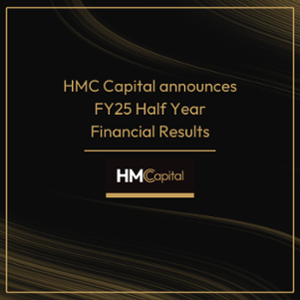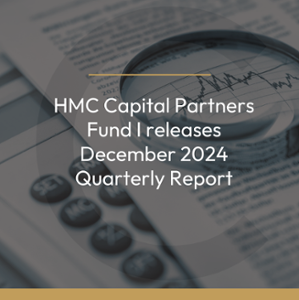INSIGHTS | Stock Picking vs Proactive Management – What's the difference?
Managing Director – HMC Capital Partners
At HMC Capital, our unlisted alternatives funds are described as being private equity style investing in the listed market. Another way of describing this, and a way that we view ourselves is as a high conviction proactive manager. So how does stock picking (like the managers at Perpetual, Bennelong, Ausbil or any of the other Australian equity managers available to financial planners) compare against proactive management?
Stock picking and proactive management are two approaches to investing in the stock market. While both methods aim to generate returns for investors, they differ significantly in terms of strategy and outcomes. As an Australian financial planner, it's important to understand these differences to determine which approach is suitable for your clients.
Stock picking involves selecting individual stocks based on analysis of financial data and market trends. The goal is to identify stocks that are undervalued or have the potential for significant growth, and hence are well positioned to increase in value over time. This requires a significant amount of research and analysis, and success often depends on the individual skill of the investor or analyst. Portfolios for this type of investment tend to hold 25 to 50 different companies, as diversification is important given the outcomes for each individual investment is out of the control of the manager.
Proactive management, on the other hand, involves not only identifying undervalued stocks but also taking an active role in the investee companies. Proactive managers seek to influence the decision-making of the company's management and board of directors in order to improve the company's performance and increase shareholder value. This can involve engaging with the company's leadership, proposing changes to corporate strategy, the sale of certain assets or even changing the capital structure of the business to effect change. Portfolios with this type of investment tend to be far more concentrated due to the time and effort required to catalyse these changes.
While both stock picking and proactive management have the potential to generate returns for investors, they differ in terms of risk and potential reward. Stock picking relies on temporary inefficiencies in the market and delivery of returns is largely dependent on the market recognising the inherent value in the selected stocks over time. Investors are therefore exposed to the risk that either the manager’s predictions in relation to an individual stock were incorrect, or the market has a different view of inherent value - however this risk is managed through diversification, which may also result in lower returns. Proactive management, on the other hand, aims to catalyse value through the manager’s own skill and action, and is less reliant on the market delivering returns. The risk profile of such funds is generally higher due to the concentrated nature of the portfolios; however, the potential returns may be higher.
In terms of suitability for Australian investors, the choice between stock picking and proactive management will depend on the client's investment goals, risk tolerance, and time horizon. Investors with a medium-term time horizon and more moderate risk tolerance may prefer the more traditional approach of stock picking, while those with a longer time horizon and higher risk tolerance may be more interested in the potentially higher returns of proactive management.
Ultimately, the decision between stock picking and proactive management should be based on a thorough understanding of the client's individual circumstances and investment objectives. As a financial planner, it's your responsibility to provide your clients with the information and guidance they need to make informed investment decisions that align with their goals and risk tolerance.
Disclaimer
This article does not constitute, and may not be used for the purposes of, an offer of securities or interests of any kind to any person or an invitation to any person to apply for the issue of securities or interests of any kind.
This article is for general information only and not intended to, and does not constitute tax, financial, legal or personal financial product advice. Recipients should consider obtaining their own independent financial, tax, legal and investment advice having regard to their own particular circumstances before making any financial or investment decisions. This article does not, and does not purport to, take into consideration the investment objectives, financial situation or particular needs of any person. Except for any statutory liability which cannot be excluded, HMC Capital, the Manager and their respective affiliates, related bodies corporate, directors, officers, employees, agents and advisers expressly disclaim all liability for any direct or indirect loss or damage which may be suffered by any person in relation to, and take no responsibility for, any information in this article or any error, misstatement or omission from it.



